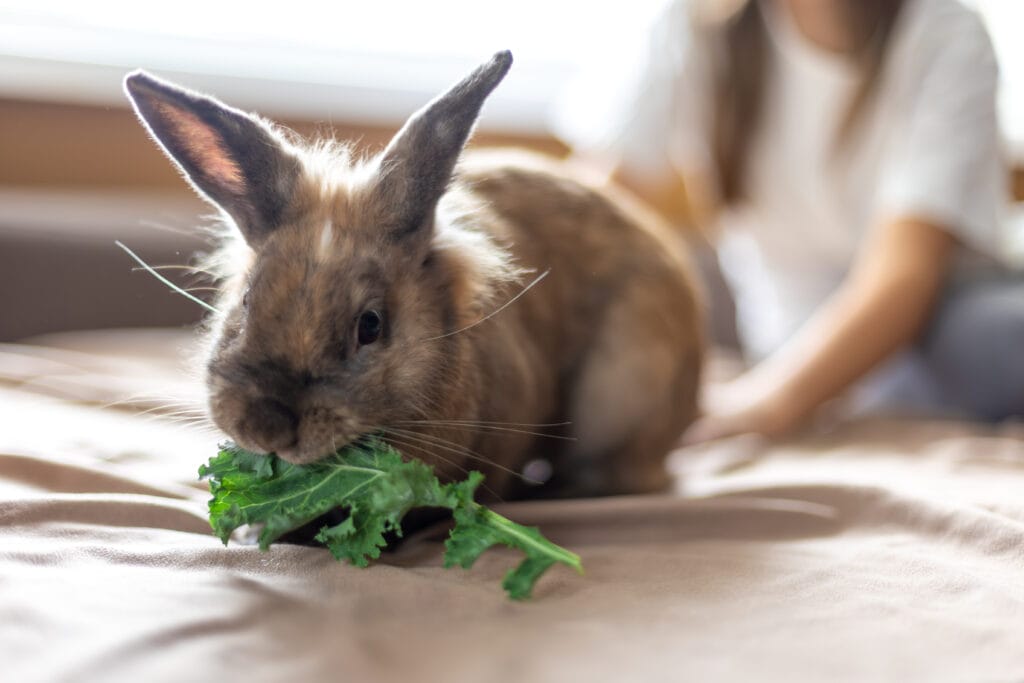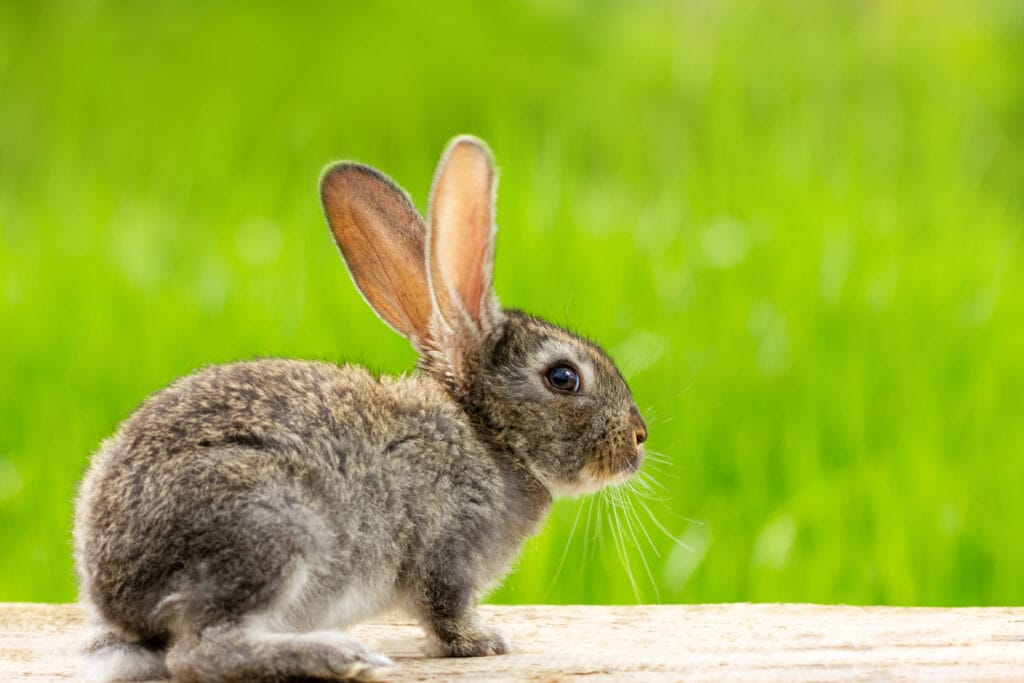As a rabbit owner, you always seek ways to provide your bunny with the healthiest, most enjoyable diet. With so many grasses and plants available, you may wonder if oat grass is a safe and beneficial option for your Rabbit. The good news is that bunnies can eat oat grass, and it can be an excellent addition to their diet in moderation.
Oat grass is packed with essential nutrients that benefit rabbits, providing a great alternative to other types of hay. In this post, we will dive into the health benefits of oat grass, how it compares to different kinds of hay, and how to introduce it safely into your bunny’s diet.
By the end of this article, you’ll understand why oat grass can be a healthy choice for your Rabbit, how to prepare it, and any precautions you should take when feeding it to your bunny.
What is Oat Grass?
Oat grass is a young, green plant that grows before oats produce their seeds. It’s harvested early when it’s tender and full of nutrients, making it a great addition to a rabbit’s diet. Unlike regular oat hay, which is harvested after the plant has matured, oat grass is much softer and easier for rabbits to chew.
Oat grass is naturally fibre-rich, which is essential for a rabbit’s digestive health. It also contains various vitamins and minerals to support your bunny’s well-being.
Can Bunnies Eat Oat Grass?
Yes, bunnies can safely eat oat grass, providing several health benefits. Unlike some other grasses or plants, oat grass is gentle on a rabbit’s digestive system and can be fed regularly as a supplement to their hay.
Health Benefits of Oat Grass for Bunnies
Oat grass can offer many health benefits for rabbits:
- Rich in Fiber:
- Oat grass is an excellent source of fibre, which is crucial for rabbits. Fibre helps promote healthy digestion, prevent obesity, and reduce the risk of gastrointestinal issues such as bloating and diarrhoea.
- Vitamins and Minerals:
- Oat grass contains essential vitamins such as vitamins A and C and folic acid. These nutrients support your bunny’s immune system, skin health, and overall vitality. The minerals in oat grass, like calcium, magnesium, and potassium, help maintain strong bones and teeth.
- Promotes Healthy Teeth:
- Rabbits’ teeth grow continuously, and chewing on fibrous plants like oat grass can help naturally trim their teeth, preventing dental issues like overgrown teeth or tooth abscesses.
- Hydration:
- Oat grass contains a decent amount of water, which can contribute to keeping your bunny hydrated. Hydration is key to maintaining proper kidney function and supporting overall health.
- Natural foraging behaviour:
- Rabbits are natural foragers, and oat grass allows them to use their instinct to graze and chew. This can reduce boredom and promote mental stimulation, leading to a happier bunny.

How to Feed Oat Grass to Your Bunny
While oat grass is safe for rabbits, following some guidelines is essential to ensure it’s a healthy and beneficial addition to your bunny’s diet.
1. Fresh Oat Grass vs. Dried Oat Grass
- Fresh oat grass is the best option for your bunny. It is more nutritious and retains more moisture, which can help with hydration.
- Dried oat grass (like oat hay) can also be fed, but it’s less nutrient-dense than fresh oat grass and doesn’t provide the same hydration level.
2. Portion Size
- Oat grass should be fed in moderation. A small handful of fresh oat grass can be added to your bunny’s daily diet, along with their usual hay (timothy hay or meadow hay).
- It’s important not to overfeed your bunny with oat grass, as too much fibre-rich grass may cause digestive upset.
3. Introduce Gradually
- Like any new food, gradually introduce oat grass into your bunny’s diet. Start with small amounts and observe how your bunny reacts to it.
- If your bunny experiences discomfort or digestive upset, such as soft stools or bloating, reduce the amount of oat grass and consult your vet if necessary.
4. Wash Thoroughly
- Wash the oat grass thoroughly to remove dirt, pesticides, or chemicals. Organic oat grass is the safest choice for your bunny.
Oat Grass vs. Other Types of Hay
While oat grass has many benefits, it’s essential to understand how it compares to other types of hay, such as timothy hay and meadow hay.
- Timothy Hay:
- This is the most common hay for rabbits and is excellent for their health. It’s rich in fibre and low in calcium, which is ideal for most rabbits. Timothy hay should make up the bulk of a rabbit’s diet, with other types of grass as occasional treats.
- Meadow Hay:
- Meadow hay is another excellent option for rabbits. It offers a variety of plants and grasses, providing a more varied texture and flavour. It’s also high in fibre and supports healthy digestion.
- Oat Grass:
- While not as common as timothy or meadow hay, oat grass offers additional hydration and a softer texture. It’s great for variety but should not replace hay completely. It works well as an occasional supplement or treat.
Best Rabbit Breeds in 2025
While discussing rabbits, some of the best rabbit breeds for 2025 are worth mentioning. Here’s a quick look at some of the most popular rabbit breeds known for their temperament and suitability as pets:
1. Holland Lop
- Small, gentle, and playful.
- Great for families with kids.
2. Mini Rex
- They are famous for their soft, plush fur.
- Very active and curious.
3. Netherland Dwarf
- Tiny and energetic.
- Needs regular exercise and playtime.
4. Flemish Giant
- One of the largest rabbit breeds.
- Enjoys larger spaces and gentle play.
5. Lionhead Rabbit
- Known for their “mane” of fur.
- Affectionate and playful.
6. English Angora
- Fluffy and friendly.
- Requires regular grooming and care.
7. Dutch Rabbit
- Outgoing and sociable.
- Loves interaction and playtime.
8. Harlequin Rabbit
- Colourful and clever.
- Great for active families.
9. Mini Lop
- Calm yet playful.
- Enjoys indoor and outdoor environments.
10. American Fuzzy Lop
- Sweet and cuddly.
- Prefers gentle interaction and soft toys.
Conclusion: Can Bunnies Eat Oat Grass?
In conclusion, bunnies can eat oat grass, offering several health benefits, including improved digestion, dental health, and hydration. While it should be fed in moderation, oat grass can be a great way to diversify your Rabbit’s diet and provide them with essential nutrients. Always wash it thoroughly, introduce it gradually, and observe your Rabbit’s reaction to new foods.
Incorporating oat grass and high-quality hay and fresh vegetables into your bunny’s routine will contribute to a balanced and healthy diet. As always, every Rabbit is unique, so monitor your pet’s health closely and adjust their diet as needed.
Read More: Can Bunnies Eat Bean Sprouts?
FAQ: Can Bunnies Eat Oat Grass?
Q1: Is oat grass safe for all rabbits?
Yes, oat grass is safe for most rabbits when fed in moderation. It’s essential to start with small amounts to see how your Rabbit reacts.
Q2: How often can I give my bunny oat grass?
Oat grass should be offered in small portions 2-3 times a week alongside regular hay and vegetables.
Q3: Can I feed my rabbit oat grass every day?
It’s best not to feed oat grass every day. It should be a treat or supplement, with hay as the primary food.
Q4: Are there any risks to feeding oat grass?
Feeding too much oat grass can cause digestive upset, so it’s crucial to keep portions small and balanced with other foods.
Q5: How do I store oat grass?
To keep oat grass fresh, store it in an airtight container in a cool, dry place. If you buy it fresh, keep it in the refrigerator for a longer shelf life.


